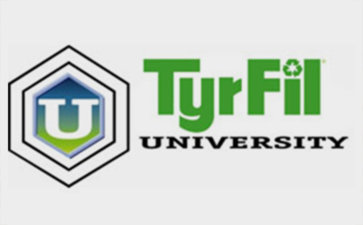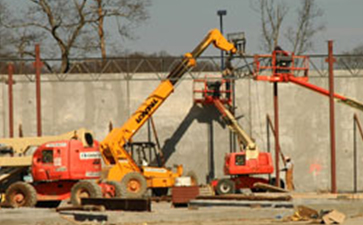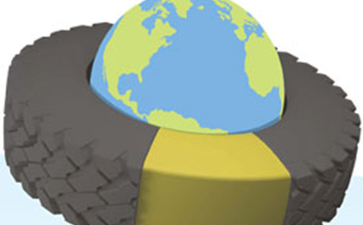The Rental Equipment Market Outlook
Despite the strain that the international pandemic and subsequent global raw goods supply chain crisis has brought upon operators working in the construction, infrastructure and large vehicle transportation management space, the outlook for the overall rental industry is looking up. While there clearly have been impacts and tests to the resilience of the industry, as noted in For Construction Pros, “businesses around the country have faced unique circumstances, but rental has remained strong.”
Globally, the construction equipment rental market was valued at nearly $93 billion in U.S. currency in 2019. (Source: Grandview Research). Then in 2021, according to Mordor Intelligence, the “construction equipment rental market was valued at USD 118 billion.” More recently, according to Proficient Market Insights, as reported in March 2022, the global equipment rental market size is “anticipated to experience a boost owing to increasing mining and construction activities.” The study cited that “due to numerous opportunities in residential, non-residential, and infrastructure sectors, there has been a rise in renting equipment. In addition to this, growing automation is also responsible for driving demand.” According to the same source, in 2021, the global equipment rental market “stood at a market size of USD 46,060 million and with a CAGR of 1.5%, it is expected to reach a valuation of USD 51,170 million”.
All of this portends well for the marketplace in the seasons to come, despite the collective hiccups experienced almost universally within the manufacturing sector in the U.S. and in many industries abroad. As the overall market returns to more stability, operators will increasingly look to ways to improve logistics effectiveness, enhance production, strengthen manpower return on investment (ROI), and ensure that maximum performance is gleaned from the necessary technology and tools central to strong construction profits.
This is where effective tire technology solutions for the heavy vehicle rental equipment market come directly into play. Transportation effectiveness and strong tire performance play a crucial role in the construction equipment marketplace. Operators need to have “go to” solutions they can rely upon to meet stringent budgets, especially as they continue to manage a still lagging supply pipeline. Heavy earthmoving equipment (particularly bulldozers, telehandlers, skid-steer loaders and front shovel excavators) are only as efficient as the tires that support them. When unexpected tire flats occur, they can immediately cripple any number of these essential “work horse” machines. And unwanted flats and punctures can also quickly take down an entire jobsite depending on the project and the type of equipment affected.
While there are many tire format selections available to construction rental equipment operators, including solid apertures and traditional air pneumatic tires, only “foam fill” tire technology renders heavy commercial/industrial vehicles virtually immune to tire flats with a smoother ride. TyrFil™, the market leader in polyurethane tire fill for more than 50 years, enables earthmoving machinery to operate over a host of worksite hazards—from nails, glass, sharp rocks, rebar and other discarded debris—without incident. TyrFil cures into a solid elastomer core within hours to make tires flat free and impervious to the dangers of unexpected damage out on the job. Construction project managers can safeguard their budget, valuable equipment and, most importantly, their workforce knowing that onsite operations can proceed smoothly once their most important vehicles have been rendered “flat free.”
For any operator concerned about safety, an unwanted tire flat on an oversize vehicle can also present a high risk for driver injury. This is especially true when equipment is operating on a gradient hillside where large cumbersome equipment is vulnerable to the hazards of an unanticipated breakdown—and even worse a tip over. Additionally, tire-filled pneumatics offer a smoother, less jarring ride, which is easier on the human muscular/skeletal system. Solid tires, on the other hand, although also impervious to tire flats, can deliver a bumpy driving experience that may be extremely fatiguing to operators who spend 8 hours or more behind the wheel, multiple days per week. The cross-axle g-force impact generated from solid tires may contribute to a real medical condition known in the occupational hazard field as Whole Body Vibration (or “WBV”). The use of polyurethane tire fill greatly reduces this hazard and provides greater ergonomic comfort for operators who rely heavily on large earthmoving equipment.
Additionally, as the construction rental equipment market gradually rebounds in the coming months—and as operators become less preoccupied with supply chain challenges and more concerned about managing for overall competitive profitability and performance—TyrFil offers an optimal tire alternative. First, the elimination of on-the-job tire flats will save operators time and money—defraying repair costs, additional labor drain, and worksite downtime. Second, for multi-national corporations under increasing stakeholder pressure to comply with global environmental efficiency standards, TyrFil technology offers a number of sustainable advantages.
For example, filled-pneumatic tires lower overall carbon footprint in the following ways:
- Utilization of tire fill technology helps to keep solid aperture tire carcasses from clogging our already overcrowded landfills, and reduces the environmental toxicity of slow burn tire piles (the dreaded “tire fire”)
- Tires filled with polyurethane fill also can be effectively retreaded and repurposed for “second life” utility
- TyrFil additionally employs next generation technology that significantly reduces the use of oil, petrochemicals, toxic metals and other environmentally harmful compounds
By playing a strong role in helping to ensure safer manufacturing and on-site applications when used in conjunction with Off-the-Road (OTR) rental equipment, TyrFil can make a measurable contribution to helping to keep our environment safer.
These and other innovations in tire and transportation technology will continue to figure heavily into the future of construction vehicles and machinery. At Carlisle TyrFil, we look forward to positive growth ahead for the overall rental equipment space and a more robust, healthy outlook ahead as the market gradually rebounds from the supply chain crises of the past year.
For more information on TyrFil solutions for the OTR marketplace, please read here .


